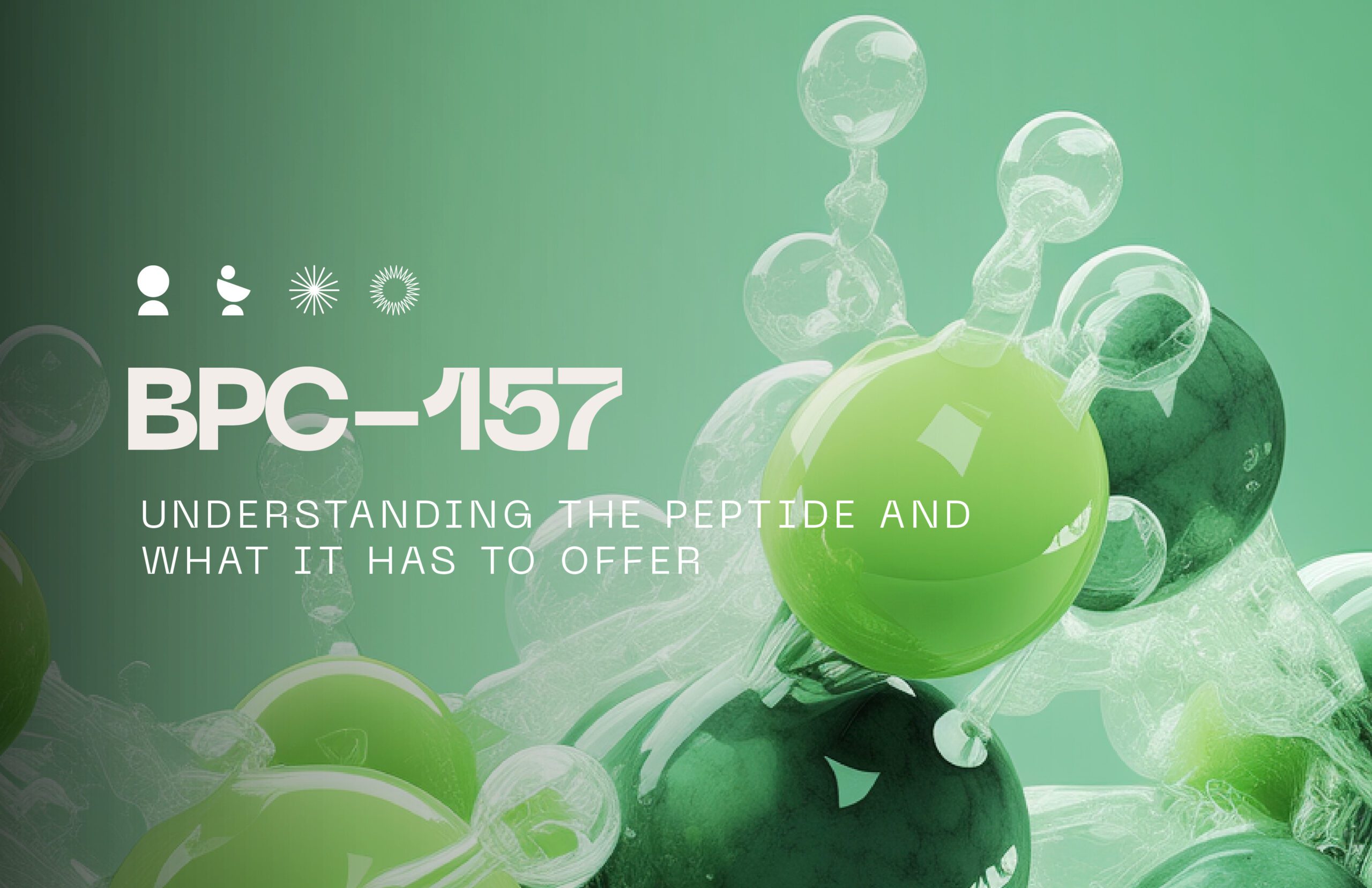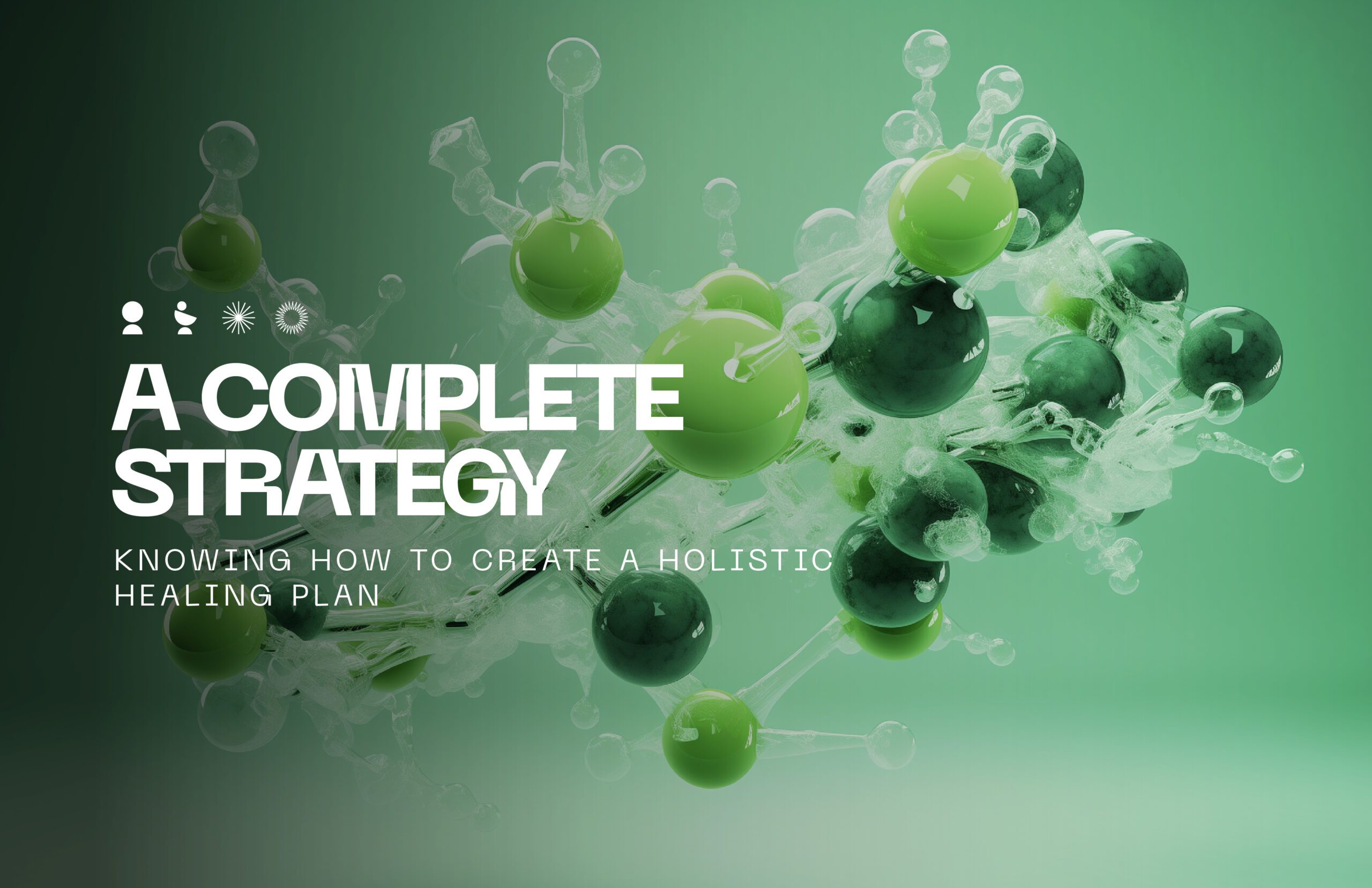Blog
BPC-157 – Crohns disease and Ulcerative colitis

Contents
Inflammation in IBDs
BPC-157: A peptide with promise
Complementary peptides to try
Creating a personalized healing plan
IBD management made easier
Have you heard of BPC-157? It could be your path to a better life in the face of IBDs.
Inflammatory conditions like ulcerative colitis and Crohn’s disease trigger debilitating symptoms. Their exact causes remain elusive, as does a definitive cure. Conventional drugs often aren’t enough to ease their effects. As a result, people turn to natural aids and alternatives.
Today, we discuss one such alternative. It’s a promising option that could lead to symptom reduction and even remission.
Keep reading to learn about the BPC-157 peptide for gastrointestinal issues. We examine its mechanisms, complementary therapies, and the importance of individualized, well-rounded treatment.
Inflammation in IBDs
Crohn’s disease and ulcerative colitis belong to the IBD category. This abbreviation stands for “inflammatory bowel disease” and describes disorders characterized by chronic digestive tract inflammation.
IBDs vary in severity. They range from mild to debilitating and life-threatening. Both conditions cause fatigue, weight loss, abdominal pain, rectal bleeding, bloating, and diarrhea.
They exhibit specific symptoms, too:
- Crohn’s disease triggers inflammation in the deeper digestive tract. It impacts the small intestine. The large intestine and upper gastrointestinal tract are rarely affected.
- Ulcerative colitis causes inflammation and sores (ulcers). They typically appear on the colon and rectum.
Determining how to heal gut inflammation requires figuring out its cause. Unfortunately, the exact causes of IBDs remain unknown. Doctors know that diet and stress exacerbate both conditions, but they don’t induce them.
IBDs may be hereditary or occur due to an immune system malfunction. The lifestyle effect is unclear, with smoking as the only evident risk factor.
IBD treatments focus on reducing inflammation that triggers the symptoms. In the best-case scenario, it leads to long-term remission. But mainstream solutions don’t always do the trick.
That’s why people look into BPC-157 and other alternatives.
The limits of traditional treatments
Traditional IBD treatments include medication and surgery.
The success of the most advanced treatments is around 50%. Even if a therapy option works, responsiveness drops with time. As a result, they switch medications and resort to trial and error.
Mainstream medications also trigger a cavalcade of side effects. For example, corticosteroids cause weight gain and mood swings. Immunosuppressive drugs increase the risk of illness and infection.
Even modern biologics have a low-to-moderate response rate. Many people develop resistance with time, too. Unfortunately, these antibodies aren’t magic bullets against IBDs.
It’s no wonder people keep asking how to heal gut inflammation. Some natural regenerative treatments carry great promise, including BPC-157.
BPC-157: A peptide with promise
BPC-157 is a synthetic peptide derived from human gastric juice. It’s gained attention for its regenerative effects on the gut and beyond.
Peptides are short chains of amino acids that occur naturally in the human body. They can act as hormones, neurotransmitters, and cell signaling molecules. As such, they impact everything from metabolism to immune responses and neurotransmission.
Controlled peptide supplementation supports our natural physiological processes.
The BPC-157 peptide has powerful anti-inflammatory effects. Inflammation affects multiple organs and tissues: this chemical addresses its root cause. Its applications include injury, pain, and digestive disorders.
This peptide has various mechanisms of action:
- Promoting nitric oxide synthesis. This molecule relaxes blood vessels and improves blood flow. Having more of it can support wound healing.
- Activating tissue repair cells. The body has specific cells responsible for repairing damaged tissues. BPC-157 kicks them into gear for regenerative purposes.
- Stimulating growth factor. Growth factors promote cell growth and tissue repair. Having more of them speeds up recovery after injuries and surgeries.
- Inhibiting inflammation. This peptide’s inflammation-fighting properties are well-recorded. It calms the immune system and reduces proinflammatory factors.
BPC-157 is safe and generally well-tolerated. Since it contains naturally occurring human chemicals, it carries minimal side effect risks. Let’s explore its benefits for IBD patients.
BPC-157 for IBDs
BPC-157 therapy is available via tablets or injections. Oral delivery is the most effective for treating gastrointestinal issues.
The main BPC-157 benefit is reducing digestive tract inflammation. The peptide may also strengthen the internal organs and repair IBD-related damage. It’s been clinically shown to heal ulcers and mucosal gut lining.
In IBDs, the gastrointestinal mucosa becomes damaged. It leads to nutrient malabsorption, inflammation, and harmful substances entering the blood. BPC-157 speeds up its recovery by triggering growth factors. It also releases collagen, making the gut lining structurally sound.
Besides restoring digestive organs, this peptide may prevent damage. It boosts the anti-inflammatory ones, relieving common IBD symptoms.
Complementary peptides to try
The BPC-157 peptide isn’t the only amino acid chain that heals the gut. Other chemicals could enhance its effects or support specific wellness goals. The interactions are highly beneficial if you choose your stack well.
Peptide therapy often relies on this principle. A physician examines you and determines a mix that best addresses your condition. From the palette of peptides at their disposal, the following are the usual go-tos.
Thymosin alpha & beta
Thymosins are peptides that modulate the immune system. They act as biological response modifiers, activating or suppressing immunity in response to stimuli. Various chemicals from this category made their way into the clinical setting.
The best-known peptides in this family are thymosin alpha and thymosin beta.
Thymosin alpha therapy is immune-modulating. It stimulates the thymus gland and makes it secrete immune cells. It can balance the immune response and regenerate tissues in IBD patients. When paired with BPC-157, its anti-inflammatory properties become evident as well.
Thymosin beta therapy primarily reduces inflammation. As a bonus, it supports the secretion of immune cells and tissue repair. It could keep your body resilient and improve cardiovascular health.
NAD+
NAD+ is short for “nicotinamide adenine dinucleotide.” It’s a coenzyme involved in more than 500 different functions. Its roles include energy production, cell repair, and immunity.
The levels of this peptide decline as we age, which weakens the body. That’s why NAD+ therapy is essential to anti-aging. It supports your physical, cognitive, and aesthetic wellness.
Regarding gastrointestinal health, NAD+ could address the symptoms and the causes of IBD. As it’s responsible for energy production, it could ease the fatigue associated with it. Immunomodulatory and DNA-repairing properties can reduce inflammation and heal the gut.
Glutathione
Glutathione is an antioxidant produced primarily by the liver. It consists of three enzymes and protects the cells from oxidative stress. By doing so, it maintains optimal physical health.
When paired with BPC-157, we think of glutathione as a detoxifier. It binds to toxins and disposes of them, maintaining cellular health. It neutralizes free radicals, stopping them from causing damage to the body.
This peptide performs several other tasks for gut health maintenance. It participates in immune system support and DNA repair, healing the injured lining and preventing complications.
Creating a personalized healing plan
Until we have standardized, effective IBD treatments, every person’s journey is individual. You determine how to heal gut inflammation in your unique circumstances. Holistic medicine is the best framework for this task.
Physicians from this tradition may employ traditional pharmaceuticals, BPC-157 peptides, and complementary therapies. They suggest lifestyle changes to improve symptoms and quality of life.
Lifestyle adaptations
While diet and lifestyle don’t cause or heal IBDs, they could exacerbate or relieve symptoms. Beyond treatments like BPC-157, try these tips to ease your condition:
- Get quality nutrients. IBD can cause nutritional deficiencies that leave you feeling weak and sick. Eat a healthy diet with plenty of fruits, veggies, and fiber.
- Identify trigger foods. Consider FODMAP to determine which ingredients trouble you. Remember that this nutrition style should be temporary, though. Don’t keep a restrictive diet for too long.
- Maintain a healthy weight. Obesity increases the risk of IBD flare-ups and symptoms like pain and fatigue. Exercise, eat well, and keep your BMI below 25.
- Try probiotics. Science isn’t sure whether these microorganisms aid IBD-affected guts. Some research suggests they may help in early disease stages or prolong remission.
- Reduce your stress levels. Stress can worsen Crohn’s disease and ulcerative colitis. Reduce it with therapy, exercise, journaling, and socialization to ease symptoms.
IBD management made easier
BPC-157 benefits offer hope to IBD patients. This peptide could improve symptoms and prolong remission, especially alongside other therapies.
Remember that peptides aren’t cure-alls, and they require supervision. Consult professionals before trying any new therapy. They determine what’s safe for you and devise a treatment plan that’s most likely to work.
Don’t rely solely on medicine, either. Consider lifestyle adaptations to navigate and minimize conditions. This approach lets you reclaim control of your gastrointestinal health.
Are you ready to start healing your gut? Schedule a consultation, talk with our doctors, and see if BPC-157 is right for you.
Author: Dr. Jason Phan NMD – Founder of LIVV Natural – Anti-aging – regenerative medicine – peptide therapy


